Search Results
Showing results 101 to 120 of 1106
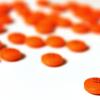
Drugs, Risks and the Nervous System
Source Institutions
In this activity, learners estimate risks associated with different events and compare their estimates to the real possibilities.

Mold Growth
Source Institutions
In this activity learners observe mold growth on different types of bread by measuring and recording the growth rate.

Acid Rain Effects
Learners conduct a simple experiment to model and explore the harmful effects of acid rain (vinegar) on living (green leaf and eggshell) and non-living (paper clip) objects.
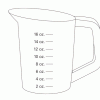
Using Food Labels
Source Institutions
In this nutrition activity, learners explore food labels and consider the nutritional value of foods. Learners also explore units of measurement commonly used on food labels.
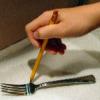
Be a Scanning Probe Microscope
Source Institutions
In this activity, learners investigate Scanning Probe Microscopes (SPM) and then work in teams using a pencil to explore and identify the shape of objects they cannot see, just as SPMs do at the nano
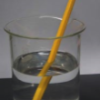
Water Illusions: Refraction & Magnification
Source Institutions
Learners demonstrate how water can distort, refract and magnify light.
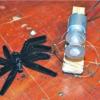
Creepy Crawlers
Source Institutions
Trick your family and friends with this creepy crawler that moves up and down. In this activity, learners construct a circuit and motor device that will move a homemade spider in a spooky way.

Dunking the Planets
Source Institutions
In this demonstration, learners compare the relative sizes and masses of scale models of the planets as represented by fruits and other foods.
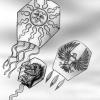
Sled Kite
Source Institutions
In this activity, learners build a sled kite that models a type of airfoil called a parawing.
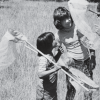
Animal Diversity
Source Institutions
In this outdoor activity, learners find, count and compare as many different kinds of animals as they can find in two different areas: a managed lawn and a weedy area.

Carbon Sequestration
Source Institutions
In this inquiry-based lesson, learners measure the biomass of trees, calculate the carbon stored by the trees, and use this information to create recommendations about using trees for carbon sequestra
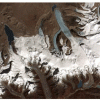
Earth's Energy Cycle: Albedo
Source Institutions
In this activity, learners experiment and observe how the color of materials that cover the Earth affects the amounts of sunlight our planet absorbs.
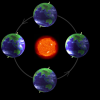
The Four Seasons
Source Institutions
In this lesson that includes hands-on activities and demonstrations, learners discover that it is the tilt of the Earth's axis (not its proximity to the sun) that causes the seasons.
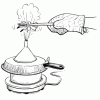
Going for a Spin: Making a Model Steam Turbine
Source Institutions
In this activity, learners explore how various energy sources can be used to cause a turbine to rotate.
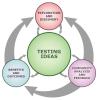
Heating and Cooling of the Earth's Surface
Source Institutions
Learners conduct an experiment to determine the rate at which two materials, sand and water, heat up and cool down.
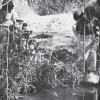
Crawdad Grab
Source Institutions
In this outdoor, freshwater activity, learners explore the behavior and food preferences of crawdads (or crabs) by "fishing" for them with various baits.
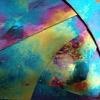
Iridescent Art
Source Institutions
This is a quick activity (on page 2 of the PDF under Butterfly Wings Activity) that illustrates how nanoscale structures, so small they're practically invisible, can produce visible/colorful effects.
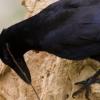
Grabbing a Bite to Eat
Source Institutions
In this activity, learners perform an experiment that replicates the dilemma faced by birds in acquiring food from a confined area.
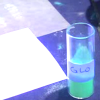
Glowing in the Dark
Source Institutions
In this activity, learners explore phosphorescence and how certain materials can absorb and store energy from a light source.
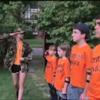
Exercise and Memory
Source Institutions
This activity (page 1 of the PDF under SciGirls Activity: Exercise and Memory) is a full inquiry investigation into the effects of exercise on short term memory.
